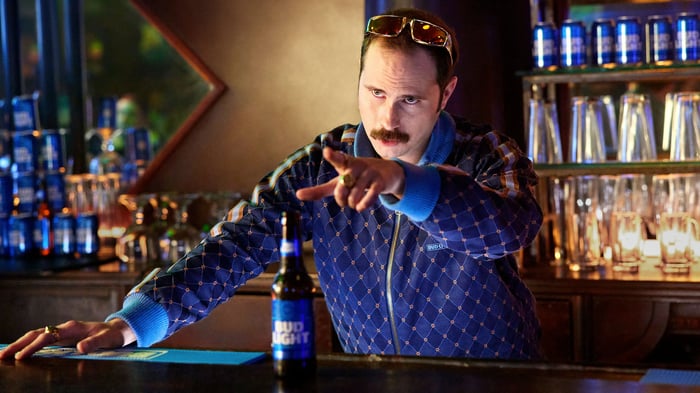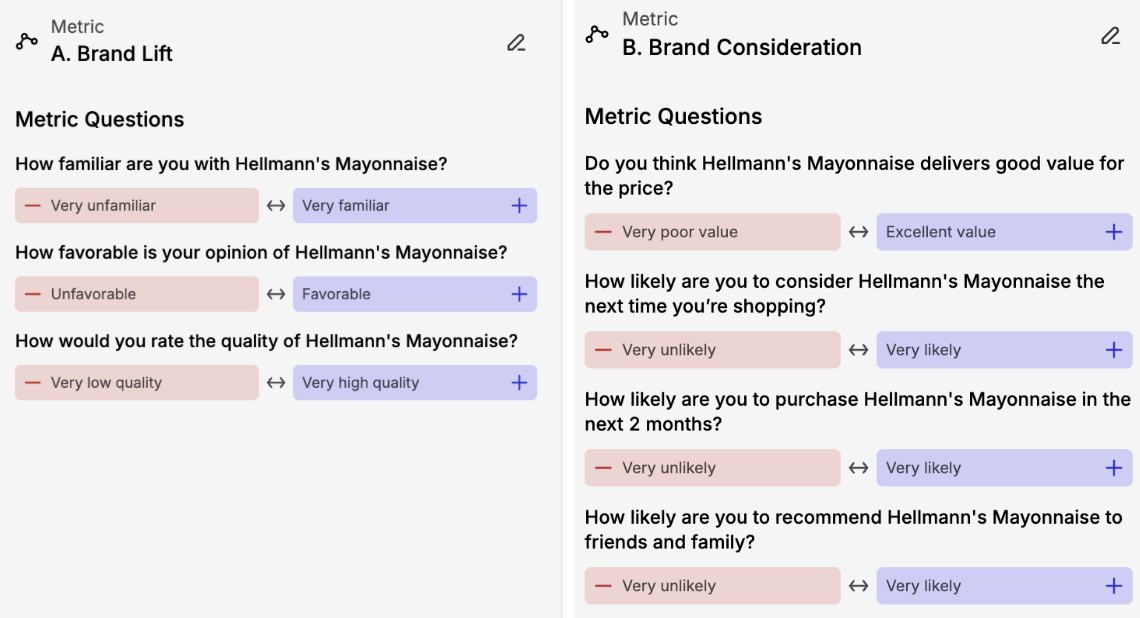Celebrity Cameos Don’t Always Mean Successful Ads at the Super Bowl
The 2024 Super Bowl struck a cultural nerve. As the most-watched US television event in over 50 years, the broadcast drew over 123 million viewers, offering brands an unmatched opportunity to reach consumers. In an era of influencer-driven marketing, the Super Bowl saw countless star-studded ads. Almost every ad featured major celebrities from across the spectrum.

We saw music stars, including Beyoncé and Ice Spice; we saw actors, including Jason Momoa and Arnold Schwarzenegger; and we saw sports legends, including David Beckham and Dana White. One ad even featured Judge Judy.
According to the Wall Street Journal, approximately 70% of Super Bowl ads feature at least 1 celebrity. We wanted to find out, does including a celebrity make a difference? Using Swayable’s persuasion science platform, we were able to evaluate whether celebrity-featured ads had an impact on brand lift and purchase intent.
Putting celebrity cameos to the test
We tested 7 Super Bowl ads on the Friday before the Super Bowl to ensure the baselines were not impacted by the ads running during the Super Bowl. The ads tested were:
- Oreo (featuring Kris Jenner)
- Pringles (starring Chris Pratt)
- M&M’s (featuring Dan Marino)
- Hellmann’s Mayonnaise (starring Kate McKinnon and featuring Pete Davidson)
- STōK Coffee (starring Anthony Hopkins)
- Bud Light (featuring Peyton Manning, Post Malone, and Dana White)
- Reese’s (no major celebrities)
Swayable collected responses from 6,749 U.S. consumers. Approximately half of the sample group was randomly assigned to control groups, and half were assigned to treatment groups, each seeing one of the tested ads.
The primary metrics were Brand Lift and Brand Consideration, each defined by several questions:

What does Gen-Z think?
We found that performance varied widely among Gen-Z audiences. According to the quantitative survey data, the presence of celebrities did not correlate with a positive impact. However, the qualitative short-form responses from Gen-Z audiences suggested that celebrities helped make these ads more memorable.
When looking at the results of the core RCT metrics shown above—Brand Lift and Brand Consideration—we can see that SToK Coffee (starring Anthony Hopkins) and Bud Light (featuring Peyton Manning, Post Malone, and Dana White) were clear leaders.
SToK Coffee featured Anthony Hopkins preparing for the role of a lifetime: as the Wexram FB mascot. The Bud Light ad showed a group of young people having a great time while a Bud Light Genie granted their every wish: hanging out with Peyton Manning, a performance from Post Malone, and even a T-Rex.
Many Gen-Z audiences liked the Bud Light ad because it was funny and entertaining with celebrities mixed in:
I thought the ad was amusing and it definitely kept my attention. – 22-year-old woman from Erie, PA
I like all of the celebrities mixed in with the genie wish guy, it brought some great comedy. – 24-year-old man from Van Wert, OH
When asked what was the most memorable part of the Bud Light ad, nearly half of Gen-Z commenters listed Post Malone’s appearance:
The most memorable part of the content was Post Malone wishing for a T-rex. – 22-year-old man from Northfield, OH
I would have to say when Post Malone showed up [was the most memorable part]. – 22-year-old woman from Red Bluff, CA
In Bud Light’s case, celebrity cameos turned what was already a successful ad into a highly memorable one.
Not all ads with celebrities are successful
However, while Bud Light and SToK Coffee found success among Gen-Z audiences with celebrity appearances, simply including a celebrity did not guarantee positive results. Pringles (starring Chris Pratt) had a slightly negative impact on both brand metrics and Oreo (featuring Kris Jenner) had no impact, despite both including well-known celebrities.
The data show that the ads themselves were not persuasive among Gen-Z audiences, and these celebrities weren’t able to change that. However, many Gen-Z respondents said that celebrities were the most memorable part of these ads.
Many Gen-Z commenters said the Pringles ad did not grab their attention and it could have been funnier.
“I thought it was kind of funny but it could be funnier if it was shorter.” 19-year-old woman from Upland, IN
“Didn’t really have [a reaction] it was very basic and similar to a lot of stuff I seen on tv as far as commercials go.” – 24-year-old woman from Jacksonville, NC
Similarly, some Gen-Z respondents said that the Oreos ad was a bit boring.
“The video was cool just boring a little bit.” –23-year-old woman from Wilmington, DE
“It was somewhat boring, but I got the gist.” –20-year-old woman from Reno, NV
However, when asked what was the most memorable part, many of the Gen-Z respondents (especially women) mentioned Chris Pratt in the Pringles ad and Kris Jenner in the Oreo ad. Interestingly, Kris Jenner is only in the Oreo ad for 9-seconds. Here are some most memorable Pringles moments mentioned by respondents:
“When Chris Pratt first comes into the ad and you recognize him.” 19-year-old woman from Athol, ID
“When Chris Pratt opened up his phone with the Pringle can.” 23-year-old woman from Houston, TX
Most memorable moments in the Oreo Ad:
“When Kris Jenner appeared and made the inside joke about her family reality show.” –24-year-old woman from Victorville, CA
“The appearance of Kris Jenner was the most memorable moment.” –22-year-old woman from Long Beach, CA
What about Baby Boomer audiences?
Interestingly, we found the opposite results among Baby Boomer audiences. Whereas Oreo and Pringles were the lowest-performing ads among Gen-Z consumers, they were among the most impactful with Baby Boomer audiences.
However, the difference in impact was driven by the message and plot of the ads, and not the presence of celebrities.
Among Baby Boomer audiences, Oreo had a +7.1 point Brand Lift impact, versus only +0.3 points among Gen-Z audiences. While Gen-Z audiences frequently listed Kris Jenner as the most memorable moment of the ad, Baby Boomer audiences tended to focus on the plot of the ad itself. Some of the most memorable moments among Baby Boomer audiences were:
“The trivial basis for serious decisions. Absurd! Yeah, I haven't twisted an Oreo in a long time. The Trojan Horse, definitely.” – 64-year-old man from Kalispell, MT
“The Trojan War could have been prevented if the cream was on the left?,!! I had no idea! This was a funny commercial.” – 59-year-old woman from Georgetown, KY
“The ending with the Mount Olympus gods that tied the different aspects of the commercial together.” – 66-year-old man from Tomball, TX
“Trying to figure out why I didn't recognize anyone knowing that they must be famous. oh wait. I am old.” – 64-year-old man from Medford, MA
Baby Boomer audiences were more delighted by the plotline of the ad—a new and funny way to use a classic, nostalgic cookie—than by the presence of Kris Jenner. Among this particular audience, that plot line drove a significant impact on improving brand lift and purchase intent.
Takeaways for brands
While Baby Boomer and Gen-Z audiences had very different reactions to some of the same ads, we can see that celebrities alone don’t make an ad. They may make a good ad great and memorable, but their presence alone is not enough. Many people enjoy spotting a celebrity in an ad, but their presence alone doesn’t guarantee a positive brand impact. Brands should continue to focus on communicating a message that matches their brand strategy and goals while using celebrities to enhance an already successful ad, rather than relying on their mere presence.
To learn more about our methodology or view the source material, check it out here.
Interested in creative pre-testing?
When you use Swayable's powerful pre-testing technology, you'll never have to gamble on how audiences will perceive your content. Stop going into your creative production process blind, and harness the power of brand insights before you take your campaign live!
To see Swayable for yourself, check out our Apple iPhone 14 demo.
Interested in a live demonstration? Contact shane@swayable.com to see how Swayable can change the game for your brand's creative process. Implementation can be done in just a few days!
